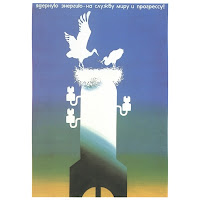
"I was once asked why I don't participate in anti-war demonstrations. I said that I will never do that, but as soon as you have a pro-peace rally, I'll be there."
Mother Teresa
When a highly educated young man decided to bring his service to his country's army, no one could expect that the very context of his nation's security would be used to shed a cover over the circumstances of his death in the army months later. Artak Nazarian's murder on July 28, at the height of tourist season in Armenia and ongoing notes of war threats regularly exchanged between Armenia and Azerbaijan, remained on the cover pages of he media for nearly a month. Where Artak's story used to be, now one may read cases and reports of other forms of criminal acts in the army.
The paradox is Artak's death, in a true post-USSR manner, has been officially reported as a suicide and his mother's open letter addressed to the MoD of RoA, simply received a rather dry official answer that the case should be left to the investigators. At the time, the perpetrators of the crime were even brought before a swiftly-formed committee of MoD, and publicly humiliated. One ought to read this sentence, keeping in mind "At the time" is merely a keyword. Again, it was the height of touristic season. Plus, the reaction of social media both at the act of the murder and the quick note by the MoD that the incident was a suicide was nothing short of public outrage that from MoD's viewpoint demanded an immediate giant PR fix-up for damage control.
Reading through FB posts from Beirut during this period was equal to opening a window into the innermost divisive patterns of our nation. Artak's case in Armenia was a case of democracy, our ongoing struggle to make sense of RoA's commitments to human rights and the very essence of what makes a statehood minus corruption. But Artak's case from Diaspora, albeit the wide media coverage, was a matter of homeland security. Many of my FB friends were either on their way to Armenia for vacation - many of them for the first time - or were due to return. In both cases, I would immediately bring up Artak's case, not as an attempt to darken their views of homeland but rather try to make sense on when an Armenian passport granted to a Diasporan stops being a mere touristic/business tool and begins to bear a stamp of civic responsibility, translated into an active voice. At those moments, I'd also dream of a little sci-fi vision of my own - imagining a Diaspora-Embassy meeting where the community would calmly, nicely speak with the representatives from Armenia and get beyond the emotional shield, merely trying to find answers to "What causes these incidents? How do we fix this? How do we make sure this doesn't happen again? ". In short, at what point in time of our centuries-long-coveted national identity makes a cross with our independence and give birth to a truly established civic nation? At what point do we begin to fearlessly think of human rights as not a fancy import of barcoded democracy but a simple concept: if you're good and I'm good and he's good and she's good, then WE're all good?